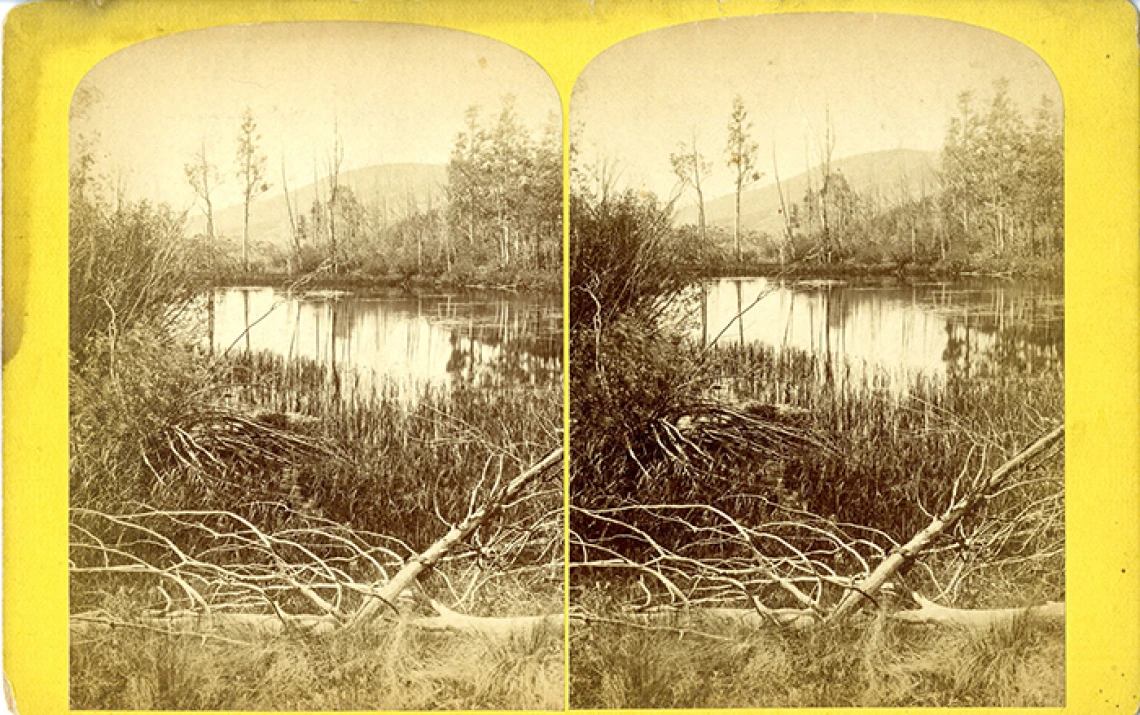Papers of Frederick Samuel Dellenbaugh

Stereoscope plate showcasing wetlands
Collection area: Literature
Collection dates: 1867-1937
Correspondence, diaries, notes, manuscripts, clippings, publications, drawings, photo albums, and photographs relating to Dellenbaugh's expedition experiences and studies of the Colorado River and the Southwest. Expedition materials consist of correspondence, photographs of individuals, and articles by Powell and others. Books, articles, short stories, and poems by Dellenbaugh are present, as well as a typescript of 1861 reminiscences by Edward E. Ayer. Also included are photographs of Dellenbaugh's paintings, southwestern Native Americans, and travels; a few taken by E.O. Beaman and John K. Hillers. Correspondents include expedition members, publishers, geographic societies, U.S. government agencies, John Burroughs, Frederick Webb Hodge, William Henry Jackson, Ellsworth and Emery Kolb, Daniel T. MacDougal, Robert Stanton, Robert Taft, John K. Hillers, and William Wallace Bass. Personal materials are diaries (1889-1935), estate papers, W. Norton Goddard family photo albums; and notes, photographs, and maps for a history of Cragsmoor, New York, founded by Dellenbaugh.
Frederick Dellenbaugh was born in McConnelsvile, Ohio in 1853. He was an artist, explorer, historian, and writer. Most notably he was a member of John Wesley Powell's Second Colorado River Expedition, 1871-1873, as artist and assistant topographer, and later became historian of the expedition and of the Colorado River. In 1899 he joined the Harriman Alaska Expedition as an artist. Dellenbaugh was one of the founder of the Explorers Club, New York. He wrote a number of books, articles, and short stories about the Powell Expedition, Native Americans, and the West.
A collection guide explains what's in a collection. New to using our collections? Learn how to use a collection guide.
Collection guideAccess this collection
Visit us in person to access materials from this collection. Our materials are one-of-a-kind and require special care, so they can’t be checked out or taken home.
How to cite
Learn how to cite and use materials from Special Collections in your research.
